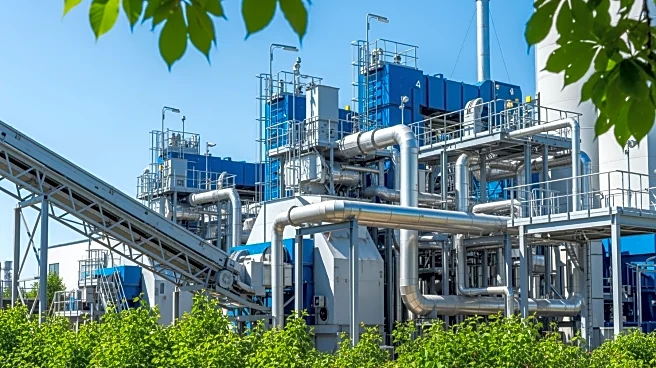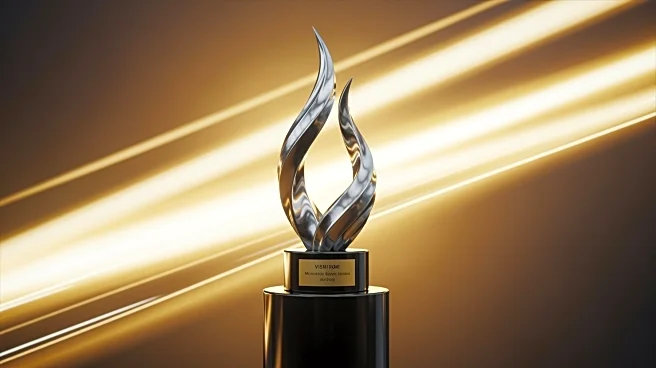What's Happening?
SUS Environment, a global leader in waste-to-energy (WtE) solutions, is significantly expanding its presence in Thailand. The company is involved in the development of 39 new WtE plants, which are part of Thailand's government plans to address energy transition
and urban waste management. These plants will have a combined processing capacity of 168,211 tonnes per day. SUS Environment has already supplied equipment for 12 of these plants, capturing a 35% market share in Thailand. The company's technology, which includes large-grate systems and digital twin technology, enhances combustion efficiency and reduces carbon emissions. This expansion is supported by a strategic acquisition of Super Earth Energy 1 Co., Ltd., and the construction of the Nonthaburi WtE plant.
Why It's Important?
The expansion of SUS Environment in Thailand's WtE market is crucial for addressing the country's energy and waste management challenges. By increasing the capacity to process municipal solid waste, these projects contribute to reducing landfill use and generating green power. This aligns with global efforts to combat climate change by transitioning to sustainable energy sources. The involvement of SUS Environment, with its advanced technology and service model, sets a precedent for other countries in Southeast Asia to follow. The company's success in Thailand could lead to further regional expansion, promoting environmental sustainability and economic growth.
What's Next?
SUS Environment is poised to continue its expansion in Thailand and potentially other Southeast Asian markets. The company's integrated approach of technology, manufacturing, and service is likely to attract more partnerships and projects. As the WtE market grows, there may be increased competition, prompting further innovation and efficiency improvements. Stakeholders, including local governments and environmental groups, will likely monitor the environmental impact and economic benefits of these projects. The success of these initiatives could influence policy decisions and investment in renewable energy infrastructure across the region.
Beyond the Headlines
The development of WtE plants in Thailand highlights the ethical and environmental considerations of waste management. By converting waste into energy, these projects address the dual issues of waste disposal and energy production. However, the long-term sustainability of such projects depends on continuous technological advancements and regulatory support. The integration of digital twin technology and high-efficiency systems by SUS Environment sets a benchmark for future projects, emphasizing the importance of innovation in achieving environmental goals.
















